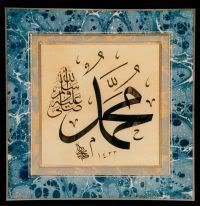At this rate, capitalism will be dead in a short time. It took the West years to defeat communism. Western capitalism eventually won the day as it was seen to be superior. Indeed it was and still is superior. Islamic economics is now winning the day, though. And there has been no need of a Cold War, and no need for guns (or swords). All it has taken is intimidation of Westerners by an assertive Muslim population, a sense of subservience to the Gulf Arabs, especially the Saudis, ignorance of the true nature of Islam and its goals, a refusal to admit to the dangers of that faith, appeasement, meekness, and timidity on the part of Westerners who are afraid of confronting the ideology, a loss of belief in our own destiny, and a dogged determination on the part of our leaders and captains of industry NOT to call Islam what it actually is: A political system wrapped up in a deity.
The end of capitalism and liberty, dear readers, is nigh! - ©Mark
THE IRISH TIMES: THERE IS an “urgent need” for sharia-compliant financial services to be made available in Ireland so that Muslims living here do not contravene religious teachings, representatives from Irish financial institutions were told at a seminar on Islamic banking yesterday.
The seminar was held at the Islamic Cultural Centre of Ireland (ICCI), which is based at Ireland’s largest Sunni mosque in Clonskeagh, Dublin.
“We organised this conference because there is an urgent need for the Muslim community here to have mortgages and other financial services that do not drive them to break their Islamic teachings,” said Ali Selim, a theologian and secretary to Imam Hussein Halawa of the ICCI.
During yesterday’s seminar Imam Halawa outlined the religious tenets of Islam that forbid the payment or receipt of interest, known as riba.
Representatives from the Arab Banking Corporation’s London subsidiary and the Islamic Bank of Britain gave presentations on how the market for Islamic finance has developed in the UK in recent years.
Several high street banks in Britain now offer a variety of sharia-compliant services, including mortgages.
One of the most common types is based on the Islamic principles of “diminishing musharaka” or diminishing ownership. Under this scheme, the customer and bank jointly acquire a property, with the customer’s share usually similar to the normal deposit, but the property is bought in the bank’s name only.
The customer makes monthly payments made up of rent and contributions towards the purchase price over an agreed period of time.
The amount of rent decreases as the customer’s share in the property increases. Ownership is transferred when the customer eventually buys out the bank.
Similar partnerships are available so Muslim business people in the UK can avoid interest repayments.
Mr Selim told the seminar that as Ireland’s Muslim population increased there would be more demand for such services here. Call for Sharia-Compliant Finance Services to Be Available in Ireland >>> By Mary Fitzgerald | May 30, 2008
The Dawning of a New Dark Age (Paperback - UK)
The Dawning of a New Dark Age (Hardback - UK)
